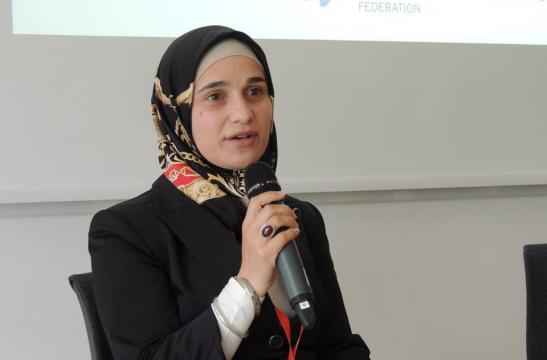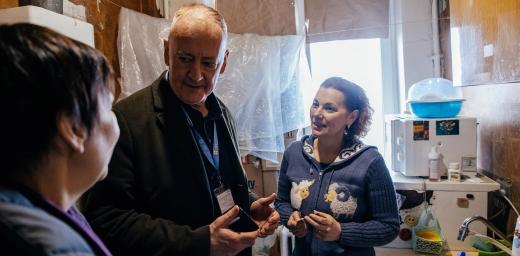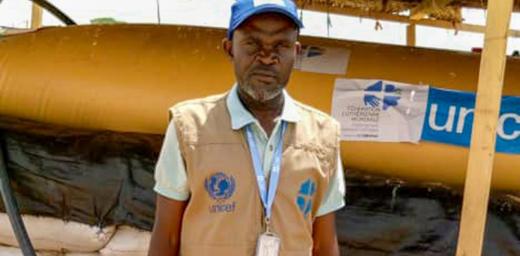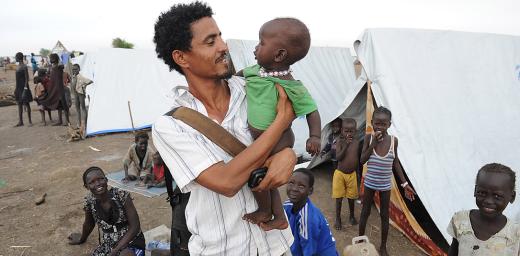Humanitarianism Means…Life
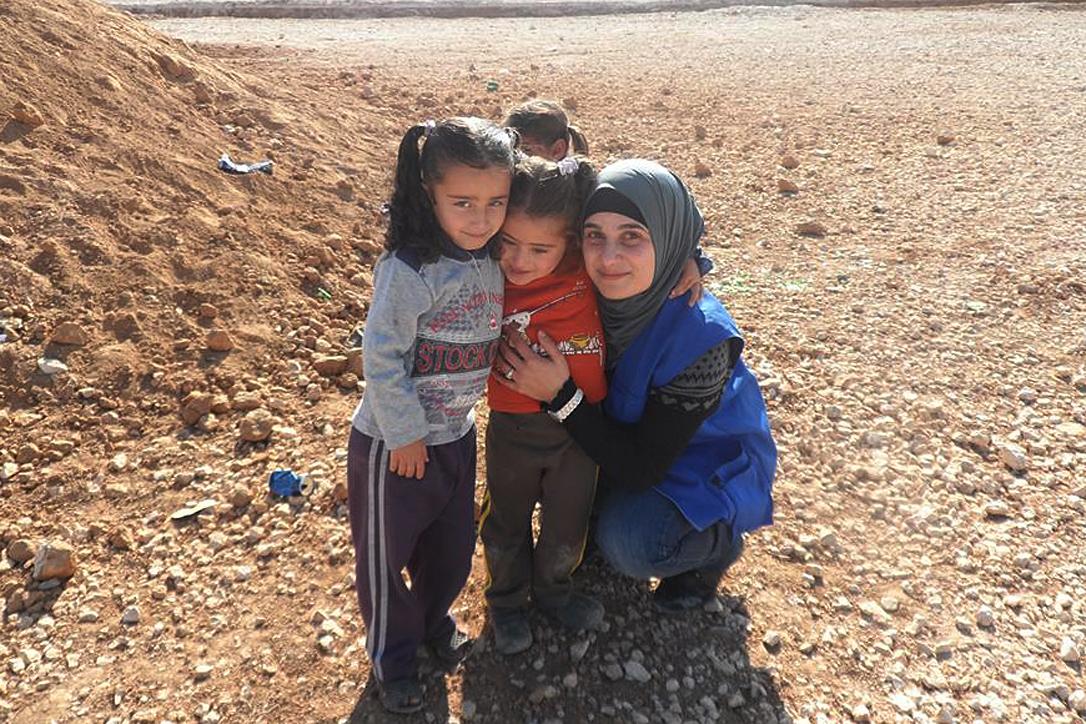
Wejdan Jarrah with children at Zaâatri refugee camp. Photo: LWF Jordan
Meet one of the 2500 Humanitarian Heroes at the forefront of the LWF’s emergency response. On World Humanitarian Day (19 August) we pay special tribute to their commitment to assist - often at great personal risk - those facing violence, displacement, hunger, and lack of basic human rights.
Why did you become a humanitarian worker or volunteer?
I joined the LWF as humanitarian worker in 2012. I have a strong desire to help others, and feel a strong imperative to reduce the suffering of others. I do this not as a Jordanian, not as a Muslim, but as a person.
Tell us a little bit about the work you do.
The LWF supports refugees in the host communities in Mafraq and at Za’atri refugee camp, where over 83,500 Syrians reside. In Za’atri, I run the Peace Oasis project. We teach youth how to cope with difficult situations, how to create a peaceful environment, how to define positive objectives, and most importantly, how to develop empathy between the young people and their communities.
We empower youth by providing vocational training opportunities and encourage youth initiatives. We want to help the young people feel that they can be an active and important part of their community, and that their voices matter.
What's the most rewarding part of your work?
Day by day, through the challenges I face in the field, I am constantly learning more and more not only about others but also about myself. I see the challenges as a way to learn and grow.
I am proud of my identity as a Sunni Palestinian woman, working for a faith-based Christian NGO, and my desire is to also work again in my life for a Jewish NGO.
What are some of the more challenging aspects of your work?
Jordan hosts more than 600,000 refugees from Syria mainly in the host communities, and a significant number in refugee camps. Around 50 percent of them are children below the age of 18 years.
It is very difficult seeing children whose futures have been disrupted by conflict; and women who continue to face challenges and suffering from violence—cultural, physical, there are many kinds of violence.
What is the most memorable moment you’ve experienced during your work?
Many of my most memorable moments come from working with our Syrian staff members, who are refugees themselves. When they tell me of the impact of our work together I feel really proud.
One staff member who is also a Syrian refugee told me, “I can respect others from different religions, and I now feel like I have a purpose in these times. I can help others through my work.”
I felt then like our work was really having impact.
What does humanitarianism mean to you?
Life.
#WHD2014 #HumanitarianHeroes


